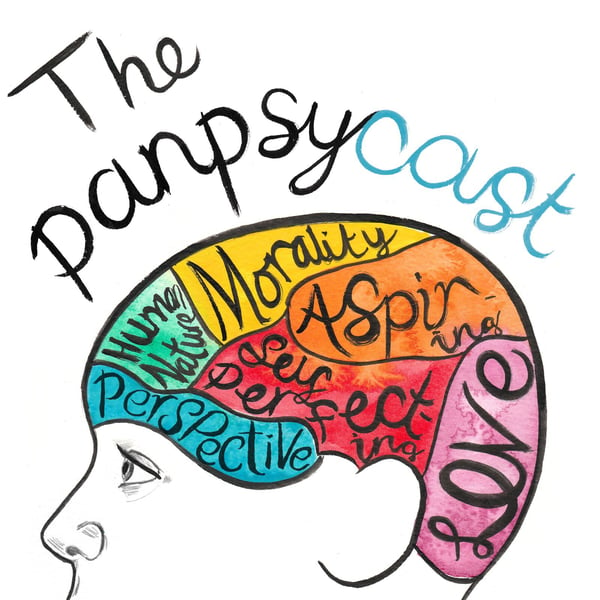Episode 37, Religious Language (Part III - The Verification and Falsification Principles)
The Panpsycast Philosophy Podcast
Jack Symes | Andrew Horton, Oliver Marley, and Rose de Castellane
4.8 • 604 Ratings
🗓️ 13 May 2018
⏱️ 58 minutes
🧾️ Download transcript
Summary
Get 20% How The Light Gets In Festival 2018 using the discount code “PANPSYCAST20” at the final checkout page! Visit: https://hay.htlgi.iai.tv/?utmsource=panpsycast. Our Patreon page: www.patreon.com/panpsycast. Everything you could need can be found at www.thepanpsycast.com! Please tweet us your thoughts at www.twitter.com/thepanpsycast.
Broadly speaking, the term 'religious language' refers to statements or claims made about God or gods. Many problems arise in the field of religious language, but our principal focus in this episode will be the problems that arise within the Abrahamic religions (that is, Judaism, Christianity and Islam). Simply put, it is unclear how one could use human-made language, to talk meaningfully about something infinitely powerful, infinitely knowledgeable and infinitely loving. This problem is worrisome to believers as it has the potential to undermine their traditions; if we cannot speak meaningfully about God, then the texts and teachings of Abrahamic faiths can only be deemed unintelligible (i.e. impossible to understand). In his Dialogues Concerning Natural Religion, the 18th Century Scottish philosopher David Hume alluded to the problem as follows: “But when we look beyond human affairs… when we carry our speculations into the two eternities, before and after the present state of things; into the creations and formulation of the universe; the existence and properties of spirits; the powers and operations of one universal Spirit existing without beginning and without end; omnipotent, omniscient, immutable, infinite and incomprehensible: We must be far removed from the smallest tendency to scepticism not to be apprehensive, that we have here got quite the reach of our faculties.” In Part I we’re discussing ‘the via negativa’, in Part II, Thomas Aquinas and Ludwig Wittgenstein, in Part III, the verification and falsification principles, and in Part IV we’ll be engaging in some further analysis and discussion.
Transcript
Click on a timestamp to play from that location
| 0:00.0 | This summer, we're delighted that the Pan-Sycast team will be partnering up with the world's largest philosophy and music festival |
| 0:07.0 | How the Light Gets in, which takes place in the idyllic setting of Hay-on-Wye, from 25th to the 28th of May. |
| 0:14.0 | We'll be interviewing the world-leading speakers that will be appearing on the festival lineup, |
| 0:18.0 | which this year includes Noam Chomsky, John McWhorter, |
| 0:21.8 | Julian Beguini, Nancy Cartwright and Miriam Francois, to name but a few. As part of our partnership, |
| 0:28.2 | they're offering our listeners 20% of festival tickets using the code Pan Seidcast 20. That's P-A-N-P-S-Y-C-A-S-T-2-0, in capital letters all one word. |
| 0:41.0 | You can purchase your tickets at how the light gets in.org by entering this unique code on the final |
| 0:46.4 | checkout page. If you love philosophy and you haven't heard of How the Light Gets In festival before, |
| 0:51.3 | it's not to be missed. Head over to how the light gets in.org for more |
| 0:55.0 | information. There's also a link in our iTunes description. Bost it. Dab, dab, dab, dab, dab. And the Part 3. The Verification Principle and the Falsification Principle. |
| 1:20.7 | Our inquiry question, can you verify that this segment's going to be absolutely brilliant? |
| 1:25.1 | Or can you falsify it? |
| 1:26.9 | No. |
| 1:27.6 | Okay. Fantastic. Thanks. That's it. You can't do either. Straight off the cuff. We can't verify that it's going to be good fun or falsify it. No, we can't do either of those things. Brilliant. Okay. So that's Andy's bias out of the way. So we should start by saying what logical positivism is before we engage on what the verification principle is. We looked at this in our meta-ethics episodes, looking at emotivism. I think that's part three of our meta-ethics episodes. I'm just going to unpack what the Vienna Circle is, guys, if that's okay, as you scribble through your notes, fancatingly. That is quite all right. I imagine you're quite happy for me to... |
| 2:01.4 | So what was the Vienna Circle, Jack? |
| 2:03.3 | Oh, wonderful. |
| 2:03.9 | Thank you for asking, Olly. |
| 2:05.2 | Well, the Vienna Circle is in the 1920s, I believe. |
| 2:09.7 | I think it's 1924 to 1936 off the top of my head at the University of Vienna, |
| 2:14.0 | where a group of hugely influential philosophers were discussing logical |
| 2:19.1 | positivism. And this idea is often known as logical empiricism. So we can only talk meaningfully |
| 2:26.5 | about things that are verifiable is what their initial principle was. And this is known as the |
... |
Please login to see the full transcript.
Disclaimer: The podcast and artwork embedded on this page are from Jack Symes | Andrew Horton, Oliver Marley, and Rose de Castellane, and are the property of its owner and not affiliated with or endorsed by Tapesearch.
Generated transcripts are the property of Jack Symes | Andrew Horton, Oliver Marley, and Rose de Castellane and are distributed freely under the Fair Use doctrine. Transcripts generated by Tapesearch are not guaranteed to be accurate.
Copyright © Tapesearch 2025.

